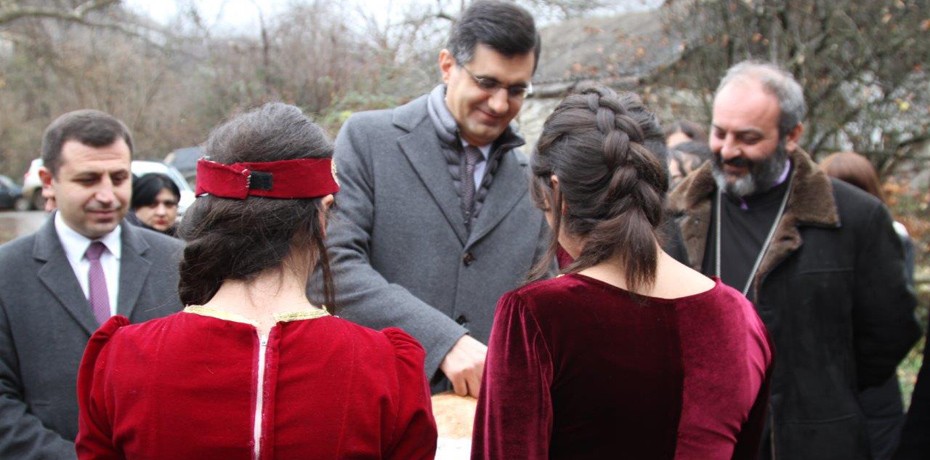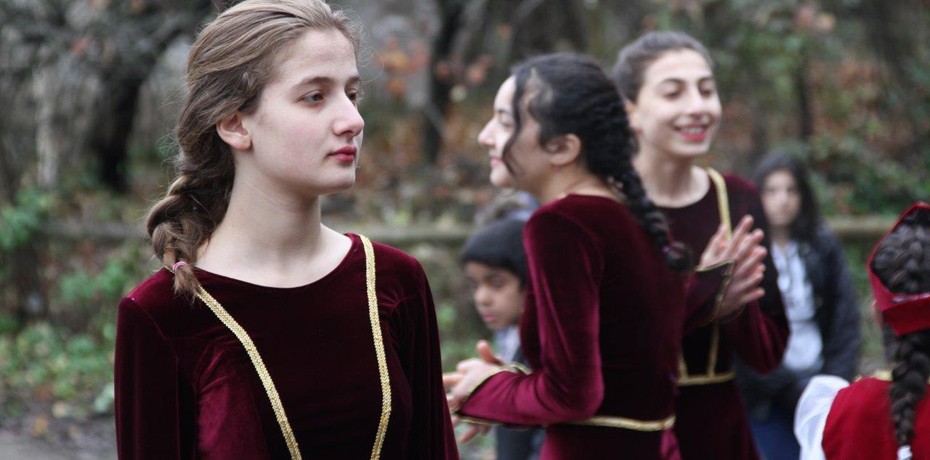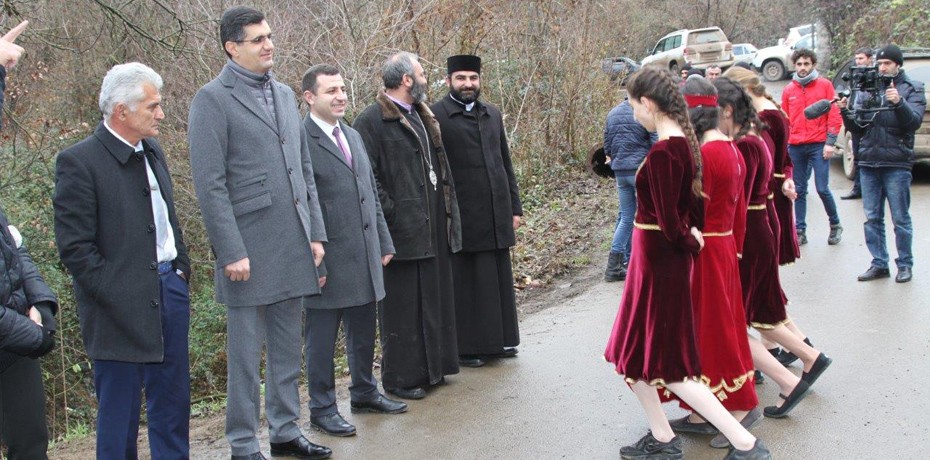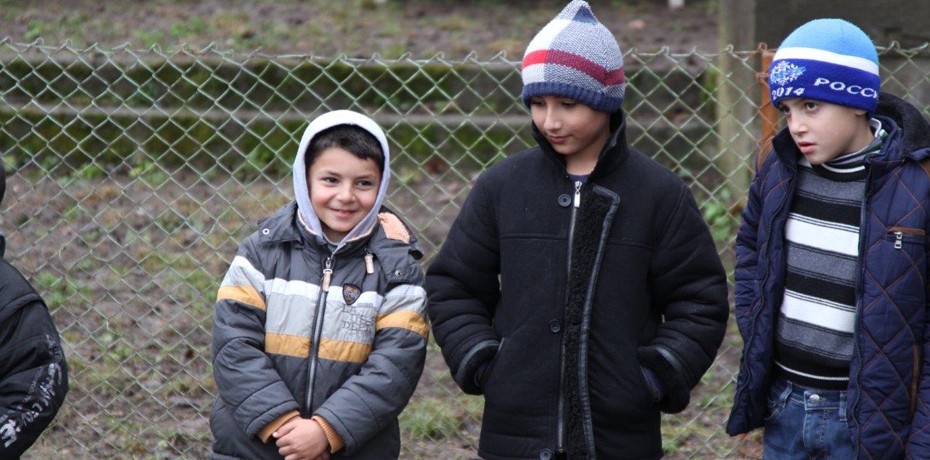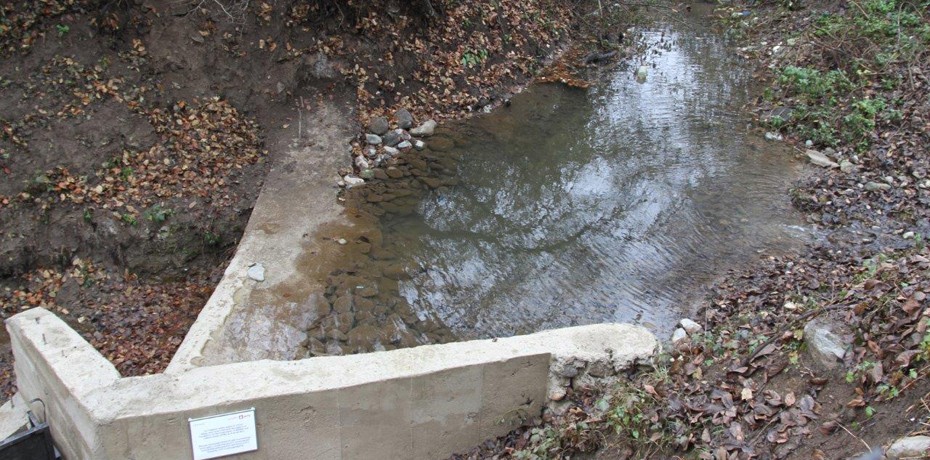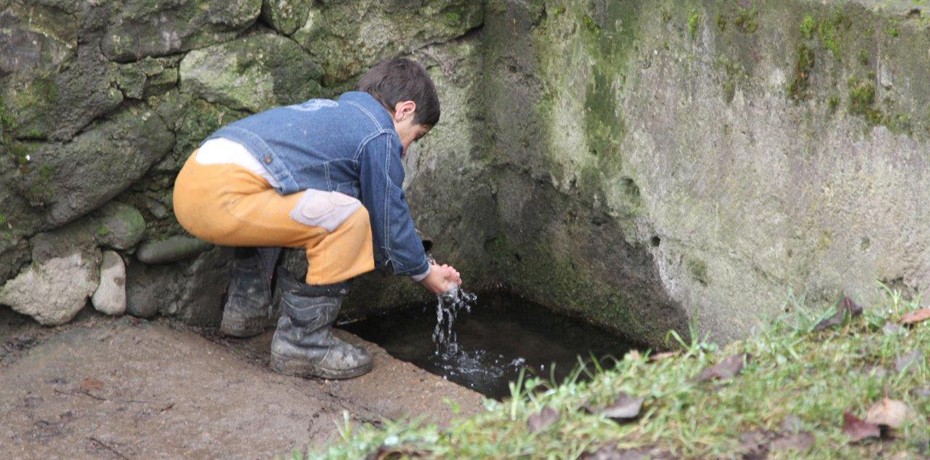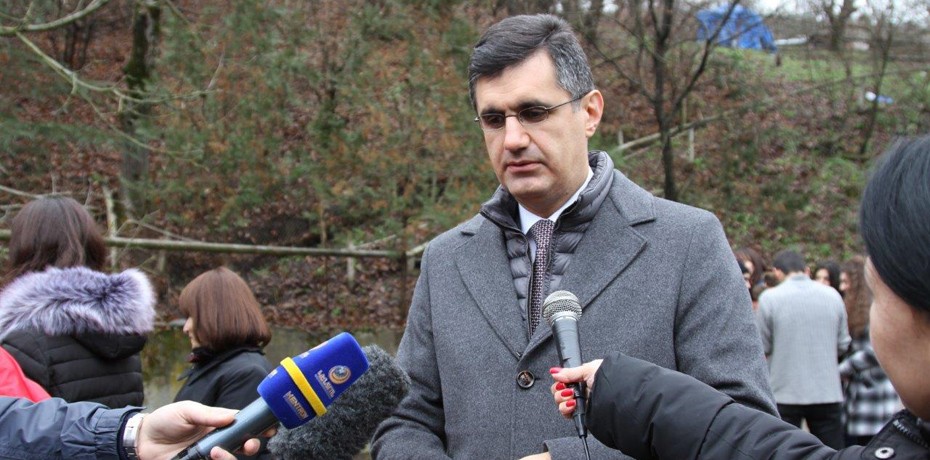17:46 | 08.12.16 | News | 12392
VivaCell-MTS supports installation of new irrigation system in Chinari
A new irrigation system, including one river water intake and 650m-long pipe, has been launched in Chinari village of Tavoush region, which has a 28 km-long common border with Azerbaijan. This is the second joint project of the Foundation for the Preservation of Wildlife and Cultural Assets (FPWC) and VivaCell-MTS implemented in Chinari during the current year.
As a result of the cooperation, a new water supply system was launched in the village in spring: a new water reservoir, a pumping station and a 300m-long pipe were built. The water is now being collected and pumped into the main regulating reservoir.
In the frames of the second project, due to the launch of the new irrigation system, the unused water is now pumped for the irrigation of the 33 hectares of cultivated land. The new irrigation system has been connected to the former one, benefiting to the inclusion of more arable lands. Another advantage of the new system is that now 15-25 liters/second more water is used. Moreover, in the past the supply of the irrigation water was done by a schedule. Owing to the new irrigation system, the village now has a 24/7 water supply.
The launching ceremony of irrigation system was attended by the General Manager of VivaCell-MTS Mr. Ralph Yirikian, the General Engineer and Project Manager of FPWC Martin Maralchyan, Chinari community head Samvel Saghoyan, and the residents of the community.
In terms of existing problems, the borderland villages are more vulnerable. Some places of this village are within a distance of 600 meters from the adversary’s location. This village is а key focus of attention for the Foundation for the Preservation of Wildlife and Cultural Assets and VivaCell-MTS, as evidenced by the investments made in recent years with the aim of improving the social life of the village.
“Borderland villages remain within the focus of our attention, and not just in terms of the network development. We are guided by responsible attitude as we clearly understand that it is the way for the long-term development of the country. We should mention that this attitude has been adopted by our employees, too. Maybe this is the reason the members of our family contribute personal means in various projects implemented now and then. Sometimes those efforts are made on a voluntary basis. Chinari is one of those villages supported by both the organization and its employees. This is a village, where the residents are cultivators of their soil, and equally guards of our borders. Care and attention to this target group are a must. And there should be a unified approach in this no matter if it comes from the state or the private sector,” said VivaCell-MTS General Manager Ralph Yirikian.
The implementation of such projects in Chinari is aimed at preventing the migration, and relieving the burden of the residents. The main activities of the locals are growing vegetables, producing tobacco, and gardening.

17:29 | 24.09.25 | Articles
Jacopo Losso on Cross-Border Investments and Why Armenia Attracts Angels

